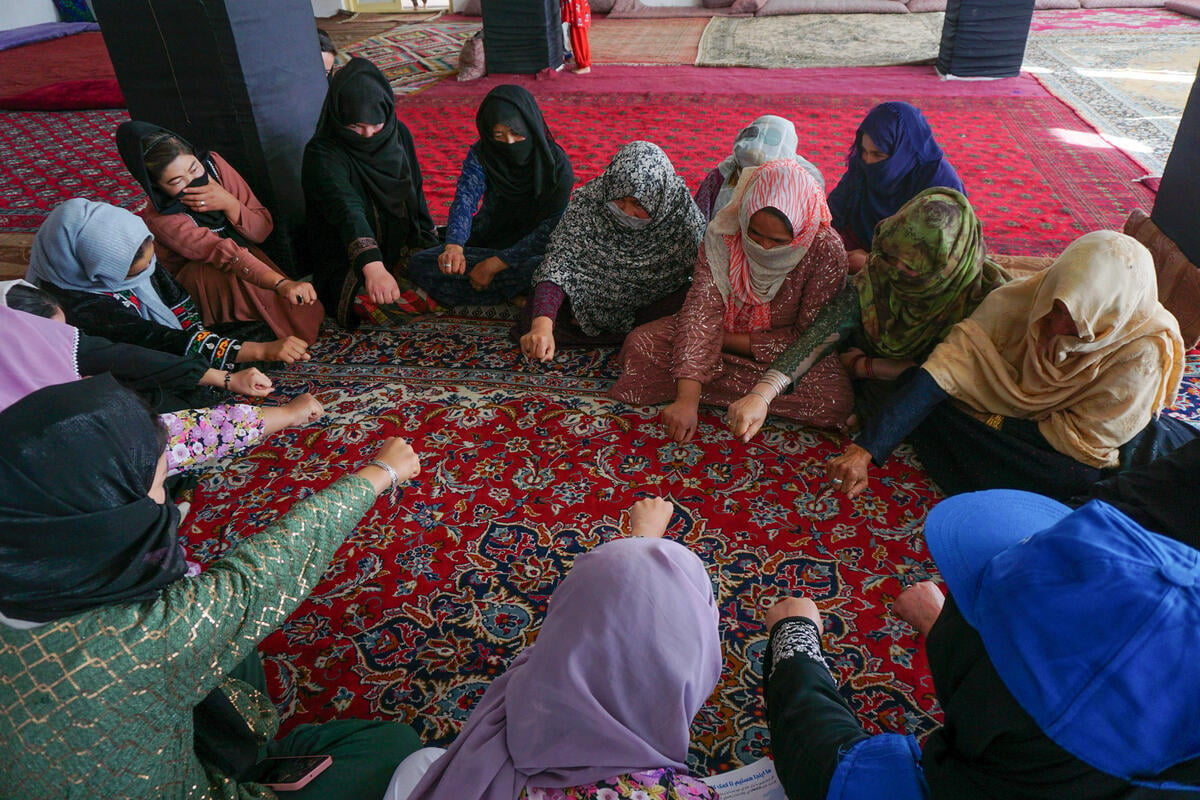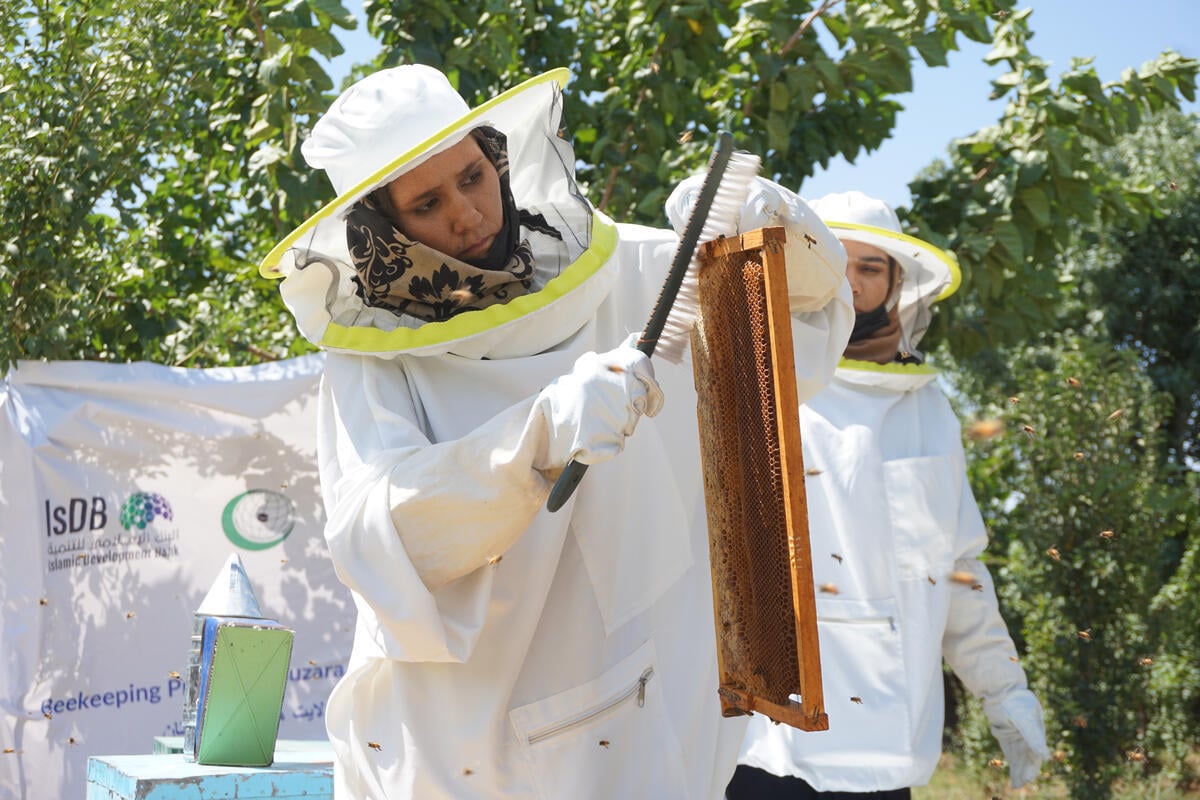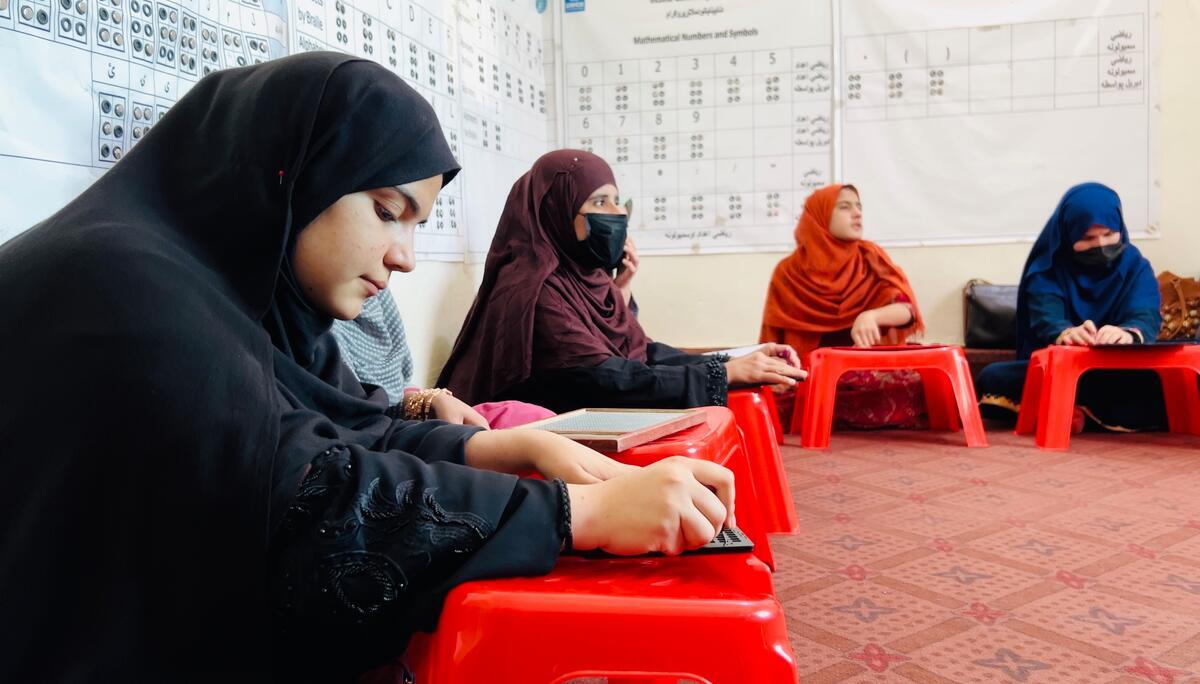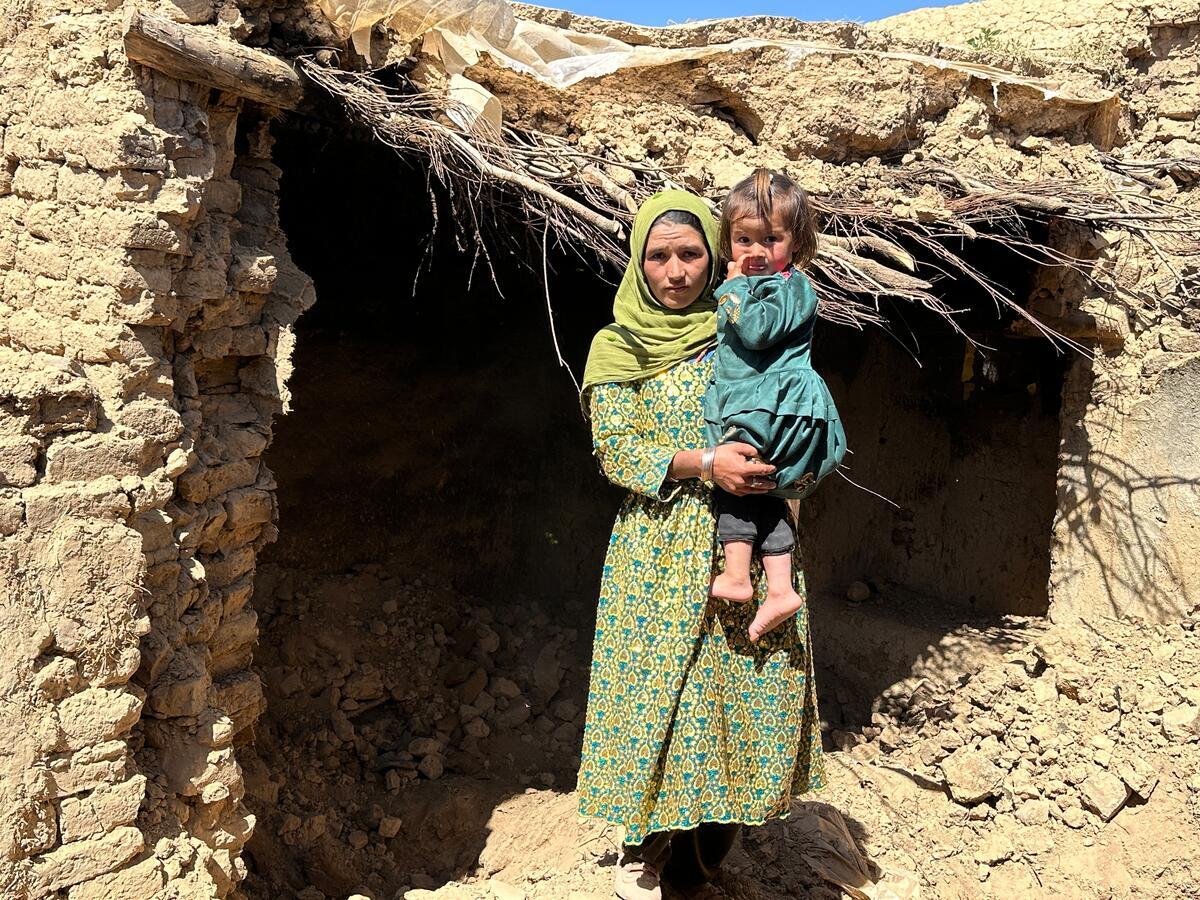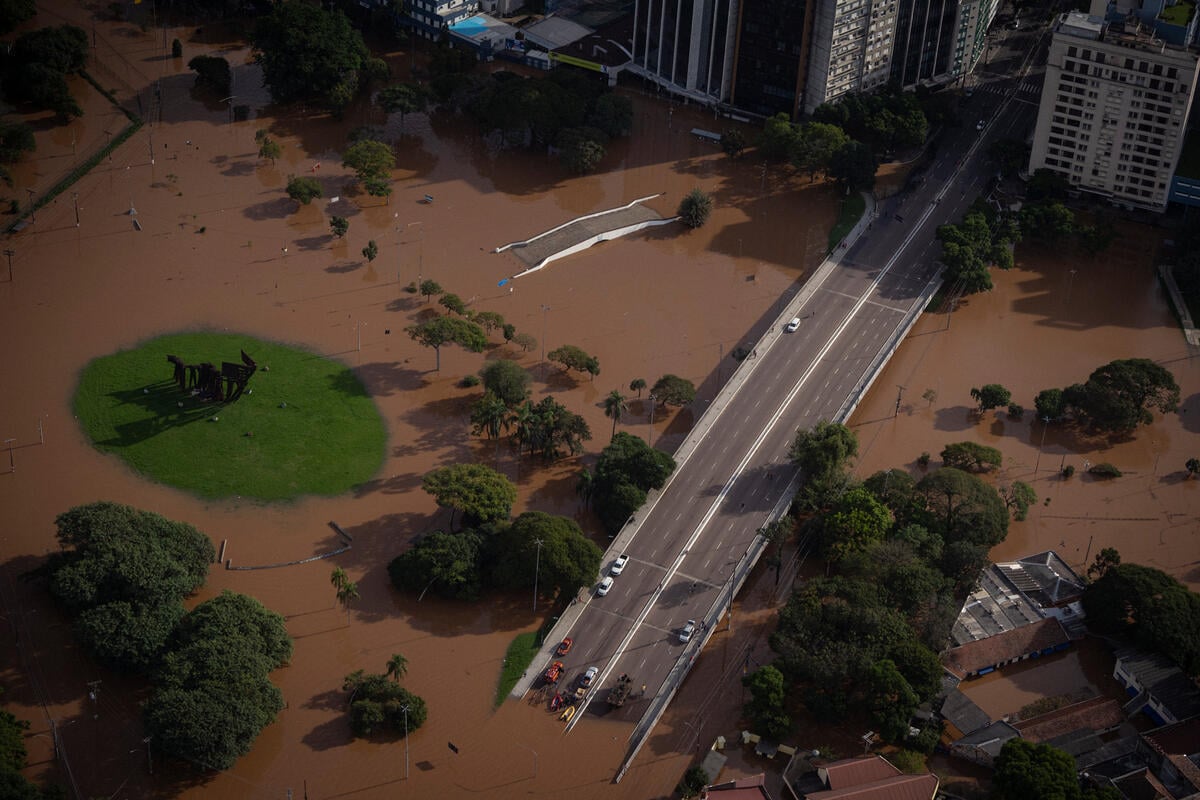UNHCR contributes to aid distribution in Kabul
UNHCR contributes to aid distribution in Kabul

KABUL, Nov. 21 (UNHCR) - The U.N. refugee agency Wednesday conducted its first aid distribution in the Afghan capital since relief agencies withdrew from the country in September, providing blankets and food from the World Food Programme to needy civilians.
The supplies were salvaged from UNHCR stocks still remaining in the city, and were issued as part of a wider humanitarian distribution Wednesday. One agency warehouse had earlier been looted, as were its offices in Jalalabad, Mazar-i-Sharif, Kandahar and Spin Boldak and Helmand provinces.
Two UNHCR aid flights containing tents, plastic tarpaulins and 4,000 kitchen sets also arrived Tuesday and Wednesday in neighbouring Uzbekistan, though wintery conditions in the region hampered efforts to ferry humanitarian aid across the Amu Darya river into northern Afghanistan.
In the east, a 15-truck convoy from the Iranian city of Mashad, crossed into Afghanistan Wednesday and will proceed Thursday to Herat where UNHCR has re-opened its office. The city was reported calm, with only sporadic shooting, and the new authorities beginning to confiscate weapons.
On the ground, the transfer of Afghans to new sites inside Pakistan continued Wednesday. Some 550 people moved from the Jalozai camp near the city of Peshawar to the new, nearby Kotkai site, bringing the total there to more than 1,300 people.
In the south of the country, two convoys moved some 640 people from near the Chaman border crossing to another site at Roghani. New arrivals at that frontier post said tension remained high in the city of Kandahar and they had left because they feared for their safety. They said some 300-400 other families had arrived at Spin Boldak, just across the border inside Afghanistan and were living in the open.
Field staff in Iran said the profile of Afghans returning home through the north-east border crossing at Dogharoun had changed significantly in the last few days. Many more Uzbeks, mainly young men, were now going back compared with one week ago when returnees were mainly Tajiks and Pashtuns. There were very few children - around 10 in every 1,000 - returning to Afghanistan.


